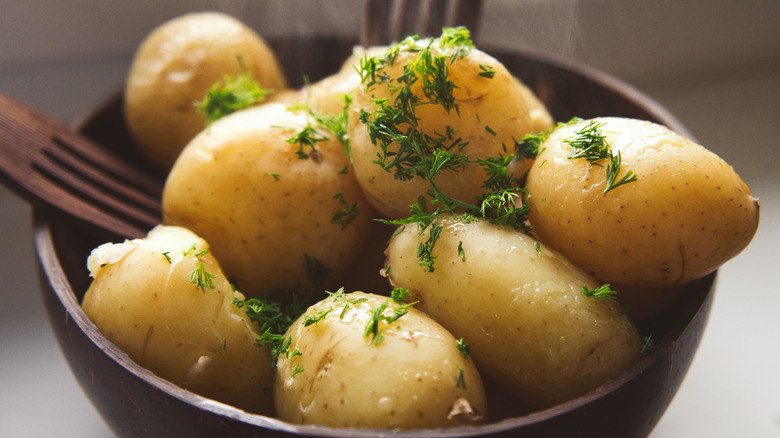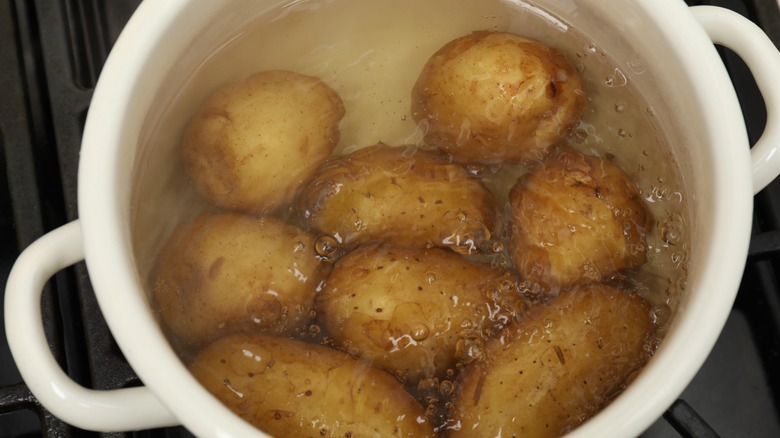Why You Should Never Peel The Skin Before Boiling Starchy Potatoes
Potatoes fall into two main categories: the waxy and the starchy type. Each of these varieties needs to be prepared and cooked in a certain way in order to bring out the best in them, and the starchy ones, arguably, need the most care and attention. For instance, something as simple and almost intuitive as peeling the skin before boiling could be the reason your starchy potatoes end up overcooked or waterlogged.
Stand-out traits of starchy potatoes are, on one hand, that they contain a lot of starch and, on the other hand, they have low moisture content. This means they absorb water when boiled. However, with the peel intact, the starch molecules are shielded from taking in too much liquid and acquiring an unpleasant mealy consistency instead of the nice creamy texture we love. Additionally, peeled potatoes lose starch to the boiling water, which, while resulting in a lighter mashed potato dish, makes them more likely to fall apart in the pot.
Furthermore, waiting to peel starchy potatoes until after they're cooked is a time-saving hack. We all know how peeling raw potatoes can be a hassle, but once those taters are hot, soft, and cooked through, removing the skin with your fingers is much easier and takes less time. Typical starchy potatoes include russet, King Edward, and Norchip. Waxy varieties tend to be the baby or new potatoes that you'd boil for a potato salad, such as fingerling, red bliss, and red Adirondack.
More tips for perfectly boiled starchy potatoes
There are several other ways you can prevent overcooking them. One of the best tips for boiling taters that goes hand-in-hand with keeping them unpeeled is avoiding cutting them before boiling. Cutting potatoes exposes the starch content in the flesh through the cut surfaces which is what we're trying to avoid by keeping the skin on.
If you must cut your spuds, we encourage making big chunks to keep the exposed surface area to a minimum. Secondly, when dealing with cut starchy potatoes, you'll need to pay closer attention and reduce the heat on the stove to a simmer as soon as the water starts boiling. If the vigorous bubbling continues for too long, the potato pieces knocking against each other will release a lot of starch resulting in a subpar dish.
Lastly, once the potatoes are cooked, drain out the hot water through a colander. The residual heat in the water can result in overcooked taters even though you turn off the stove on time. You can also spread out the potatoes on a baking tray to release the hot steam. Finally, if you want the most intact starchy potatoes with the least risk of overcooking, start steaming instead of boiling them.

